Have you ever experienced the frustration of a clogged drain? Do you know the common causes and signs of a blockage?
We dive into the world of drain cleaning, exploring different methods used to clear blockages and the average cost of professional services.
We also talk about the benefits of hiring a professional for drain cleaning and share tips on how to prevent clogs.
If you want to keep your drains flowing smoothly, keep reading to learn more!
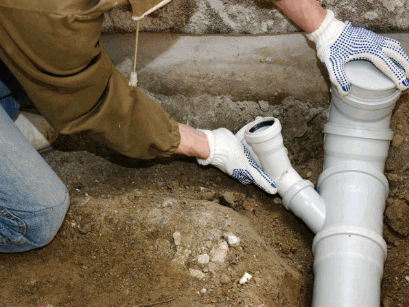
What Is Drain Cleaning?
Drain cleaning is a crucial plumbing service that involves the removal of blockages and debris from pipes and drains to ensure proper water flow and prevent backups in residential and commercial buildings.
Proper maintenance of drains not only helps in preventing clogs but also ensures the longevity of the plumbing system. Over time, debris and build-up can accumulate in pipes, causing slow drainage and potential blockages.
Regular drain cleaning by professionals plays a vital role in maintaining a healthy plumbing system by addressing these issues promptly. Hiring skilled plumbers for drain cleaning services ensures that any clogs are efficiently removed using specialized equipment, preventing further damage and potentially costly repairs down the line.
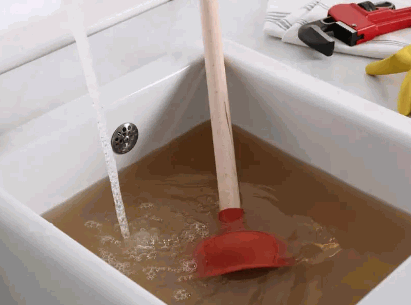
What Are The Different Methods Of Drain Cleaning?
Various methods are employed for drain cleaning, including hydro jetting, rooter service, pipe snake, and drain auger, each offering unique solutions to tackle different types of blockages and obstructions in plumbing systems.
- Hydro jetting, for instance, uses high-pressure water streams to blast away debris and clogs within pipes effectively.
- Rooter service involves a specialized cutting tool that can break through tough root intrusions in the sewer line.
- On the other hand, pipe snakes are flexible augers that can navigate through twists and turns in pipes to dislodge blockages.
- Drain augers, also known as plumbing snakes, are manual tools that can reach deep into drains to remove obstructions efficiently.
What Are The Common Causes Of Clogged Drains?
Clogged drains can result from various factors such as tree root intrusion, grease buildup, mineral deposits, debris accumulation, or pipe corrosion, leading to reduced water flow and potential plumbing issues in residential and commercial properties.
Tree root intrusion is a common cause of drain blockages, with tree roots searching for water sources entering cracks in pipes. Grease accumulation poses another significant issue, as grease sticks to the pipe walls and solidifies over time, hindering proper water flow. Mineral deposits from hard water can adhere to the pipe walls, narrowing the passage for water to flow freely. Debris accumulation, such as hair, soap scum, and food particles, can also contribute to clogged drains by collecting and causing obstructions. Pipe corrosion is another factor that can lead to blockages and leaks if left unaddressed.
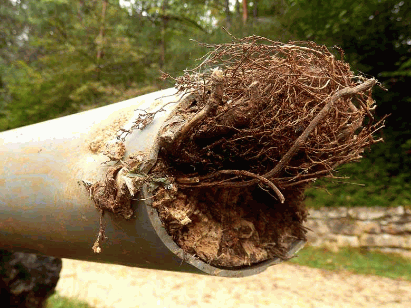
What Are The Signs Of A Clogged Drain?
Recognizing the signs of a clogged drain is essential to address plumbing issues promptly, with common indicators including slow drainage, water backup, foul sewer smells, and gurgling noises, signaling potential blockages that require professional attention.
In addition to the visible signs, keep an eye out for water accumulating around drains, which may indicate a blockage further down the pipe. Leaks or water stains near plumbing fixtures can also point to underlying drainage issues. Unexplained increases in water bills can be linked to hidden leaks caused by blockages.
Ignoring these warning signs can lead to more severe problems, such as burst pipes or extensive water damage. Regular maintenance and early detection of clogged drains are crucial steps in preventing costly repairs down the line.
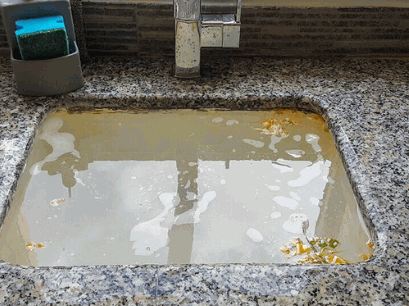
How Much Does Drain Cleaning Cost On Average?
The average cost of drain cleaning services varies depending on factors such as the type of blockage, the complexity of the job, and the service provider, with price estimates typically ranging from a flat fee to an hourly rate for professional assistance.
- Flat fees are common in the industry and generally range from $100 to $300, depending on the extent of the clog and the equipment required.
- On the other hand, hourly rates may vary between $50 to $200 per hour, considering the experience of the technician and the location of the property.
- Factors like the accessibility of the pipes, the severity of the blockage, and any additional repairs needed can also influence the final cost of drain cleaning services.
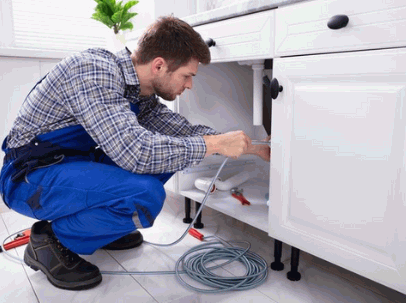
What Factors Affect The Cost Of Drain Cleaning?
Several factors influence the cost of drain cleaning, including the severity of the clog, the location of the blockage, the need for specialized equipment like sewer cameras or hydrojetting, and the provision of service quotes detailing the overall expenses involved.
The severity of the clog plays a significant role in determining the cost of the cleaning service. A minor clog near the surface may be easier and less expensive to clear compared to a deep-rooted blockage in the sewer line. The type of equipment required for the job, such as drain snakes or high-pressure water jets, can impact the overall cost. It is essential for service providers to offer detailed quotes that itemize the expenses involved, including any additional services like camera inspections or drain maintenance.
Are There Any Additional Costs Involved In Drain Cleaning?
In addition to standard charges, additional costs in drain cleaning may arise from emergency service requests, extended service warranties, or the need for specialized treatments like sewer line replacement, emphasizing the importance of understanding all potential expenses.
Emergency service requests often incur higher costs due to their urgent nature, as technicians may need to be called in after hours, during weekends, or on holidays. Extended service warranties provide peace of mind but may come at an added expense, safeguarding against unforeseen issues in the future. Specialized treatments such as hydrojetting for stubborn clogs or video camera inspections for in-depth assessments can also lead to increased costs but offer thorough solutions for long-term maintenance and repair.
What Are The Benefits Of Professional Drain Cleaning?
Engaging a professional plumber for drain cleaning offers numerous benefits, such as expert diagnosis, tailored solutions, quality workmanship, and service guarantees provided by experienced technicians to ensure effective and lasting results for residential and commercial properties.
By entrusting your drain cleaning needs to a skilled professional, you can rest assured that the issues will be accurately pinpointed and efficiently addressed. The advanced knowledge and specialized tools at the disposal of these professionals enable them to offer customized solutions that cater to the specific requirements of your plumbing system. Their high level of expertise ensures that the workmanship is of superior quality, leading to improved functionality and increased longevity of your drainage system. Professional plumbers also stand behind their services with various assurances, giving you peace of mind and confidence in the reliability of the solutions provided.
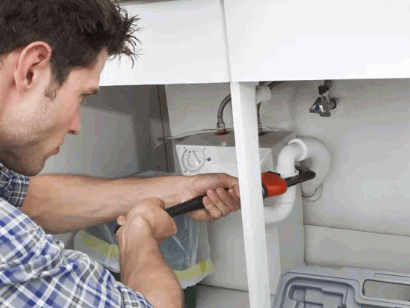
How To Prevent Clogged Drains?
Implementing preventative measures and regular maintenance services are key strategies to prevent clogged drains, involving practices like avoiding grease buildup, installing drain guards, and scheduling periodic inspections to maintain optimal plumbing system functionality in residential and commercial settings.
These proactive measures not only help in avoiding costly repairs but also ensure the smooth operation of your plumbing system. By being mindful of what goes down the drain, such as food scraps and oils, you can significantly reduce the risk of clogs. Investing in drain guards can catch debris before it causes blockages. Regular inspections by professional plumbers can identify potential issues early on, allowing for timely intervention to keep your drains running smoothly.
What Are The Dos And Don'ts Of Drain Maintenance?
Effective drain maintenance involves following essential dos and don'ts to preserve optimal plumbing conditions, including dos like using enzymatic cleaners and scheduling professional inspections, while avoiding don'ts such as flushing harmful substances or allowing grease buildup that could lead to pipe blockages.
Enzymatic cleaners are recommended for regular use as they help break down organic matter and prevent clogs. By adhering to a routine maintenance schedule, you can ensure early detection of any potential issues before they escalate.
Implementing hair catchers in shower and sink drains can prevent hair accumulation, which is a common cause of blockages. It is crucial to avoid pouring cooking oils, fats, and food scraps down the drain, as these can solidify and create stubborn clogs.
Remember that taking proactive steps in drain care can save you from costly repairs in the long run.
How Often Should Drain Cleaning Be Done?
Determining the frequency of drain cleaning depends on usage patterns, property type, and the presence of warning signs like slow drainage or recurring clogs, with service availability for scheduling appointments to ensure timely maintenance and prevent plumbing issues.
For properties with high usage, such as commercial buildings or large households, more frequent drain cleaning may be necessary to prevent backups and costly repairs. On the other hand, for smaller residential properties with moderate usage, annual or bi-annual drain maintenance might suffice.
It is crucial to pay attention to warning signs like water backup or foul odors emanating from drains as these indicate underlying issues. Having a service provider that offers flexible scheduling options can make it easier to book appointments at a convenient time, ensuring that maintenance is not neglected due to busy schedules.
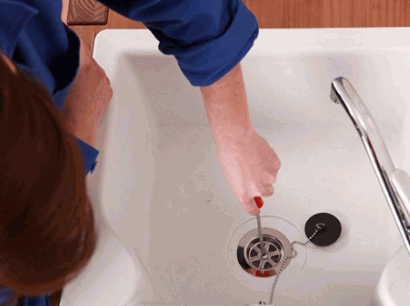
Can You Clean Drains Yourself?
While some drain cleaning tasks can be tackled independently using DIY methods like using a pipe snake or drain auger to address minor blockages, more complex issues such as persistent pipe blockages or sewer line obstructions may require professional intervention for effective resolution.
These DIY tools can certainly help to clear simple clogs caused by hair, grease, or soap scum that accumulate over time.
When it comes to more severe blockages caused by tree roots, collapsed pipes, or other serious issues, a professional plumber with specialized equipment and expertise is essential.
Attempting to tackle advanced blockages on your own could result in further damage to your plumbing system and potentially lead to costly repairs down the line.
Knowing the limits of your DIY abilities and when to call in a professional can save you time, money, and headaches in the long run.
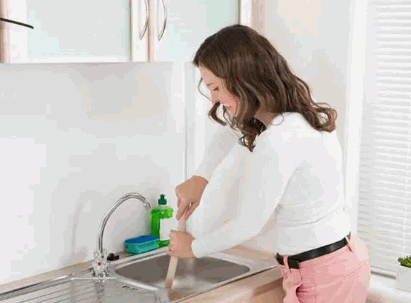
What Are Some DIY Methods For Cleaning Drains?
DIY drain cleaning methods encompass eco-friendly solutions and trenchless technologies, providing alternatives such as enzymatic cleaners, baking soda-vinegar mixtures, or plumbing snakes for environmentally conscious individuals seeking practical ways to address minor drain issues.
- By opting for enzymatic cleaners, individuals can harness the power of natural enzymes to break down organic matter within the drains, reducing the need for harsh chemicals that can harm the environment.
- Homemade mixtures like baking soda and vinegar not only effectively clear blockages but also help to deodorize the drains naturally.
Trenchless solutions offer benefits such as minimal disruption to the landscape and reduced carbon footprint, making them a sustainable choice for eco-conscious homeowners looking to maintain their plumbing systems.
Check out: Can You Use Drain Cleaner In A Toilet
When Should You Call A Professional For Drain Cleaning?
Calling a professional plumber for drain cleaning is advisable in situations involving severe blockages, recurring clogs, sewer line issues, or emergencies that require quick response times and expert intervention to restore proper drainage and prevent potential water damage in residential or commercial properties.
Expert assistance in drain cleaning becomes essential when faced with stubborn clogs that simple home remedies can't clear, as these issues can escalate rapidly, leading to overflowing sinks or toilets, foul odors, or even backups.
Emergency plumbing services offer round-the-clock availability, ensuring that urgent situations like burst pipes or sewer line blockages are addressed promptly to mitigate further damage and inconvenience for occupants.
